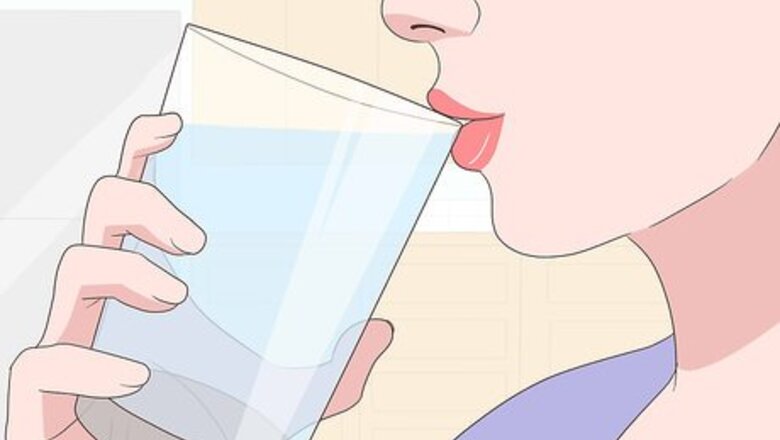
views
Trying At-Home Remedies
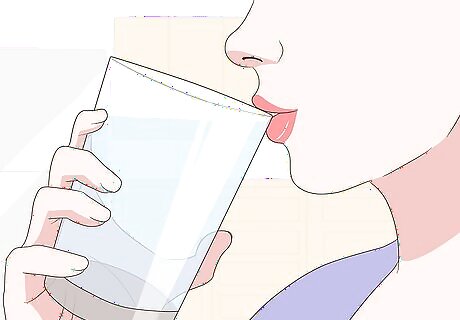
Stay hydrated throughout the day. Dry mouth can be due to dehydration, so drinking water will help combat the problem. You don't have to drink a lot during the night. Just be sure to take a swallow of water every time you get up to use the bathroom. Try drinking a couple of swallows before bed. If you wake up throughout the night, take small sips of water to wet your mouth again.
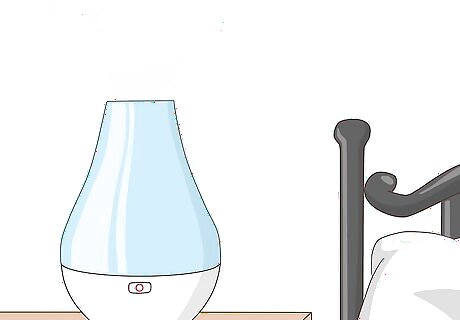
Use a humidifier at night to help combat dryness. If you're sleeping in a room with low humidity, that will contribute to your dry mouth. Run a humidifier to increase the humidity in the area. Use distilled water in humidifiers, as it is free from additives that may cause issues with the humidifiers. Make sure to clean your humidifier regularly, as you don't want to build up mold.
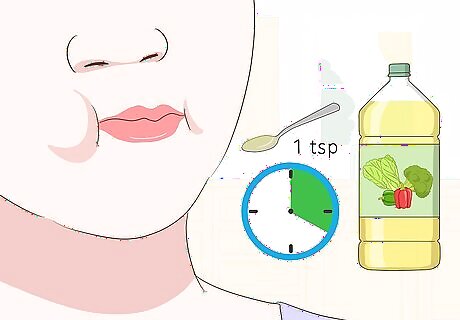
Swish vegetable oil in your mouth for 20 minutes. Oil pulling is a remedy used to help keep your mouth clean. Use 1 tsp (4.9 ml) of any vegetable oil and swish it in your mouth while you’re on an empty stomach. Keep your jaw loose as you move the oil around your mouth. The oil will coat your mouth and help keep it moisturized. After the 20 minutes, spit the oil into a trash can and rinse your mouth with warm water. Use coconut oil for a more pleasant flavor. Don’t spit the oil into your sink since it could solidify and clog your drain.
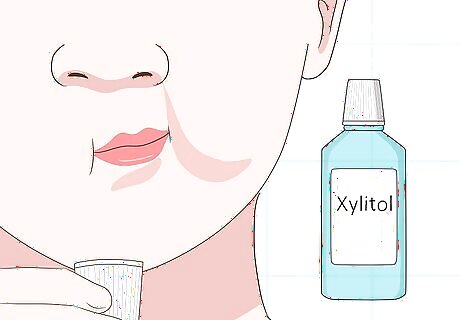
Try a xylitol mouthwash for dry mouth before bed. These mouthwashes are intended to combat dry mouth. The ones that contain xylitol are particularly effective. Use the mouthwash after you brush your teeth at night. These mouthwashes also fight tooth problems and plaque. Skip mint-flavored mouthwashes, as they tend to dry your mouth out. Avoid mouthwash that uses alcohol since it can dry out your mouth more as it evaporates.
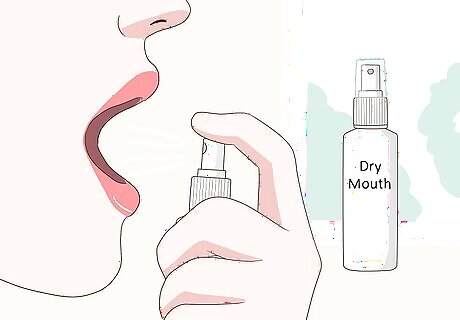
Apply a dry mouth spray or gel as needed when you wake up. These medications are available over-the-counter at your local pharmacy. When you wake up with a dry mouth, spritz a little of the medication in your mouth or apply the gel. It should help combat dryness. Follow the manufacturer's instructions on how much to apply and how often to use these. These are also available in lozenge form but don't try to go back to sleep with a lozenge in your mouth, as it could cause choking.
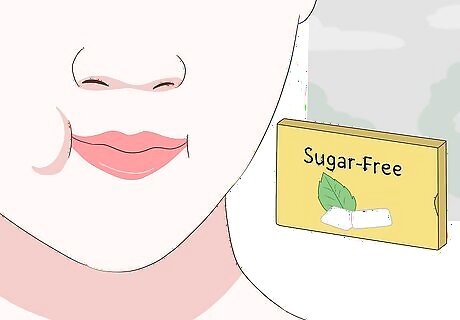
Chew on sugar-free gum before bed to stimulate your saliva glands. To help get your saliva flowing, try chewing on gum in the hour or two leading up to bedtime. That way, you'll get your saliva flowing and may have less trouble overnight. Try to skip mint-flavored gum, as it can be dehydrating.
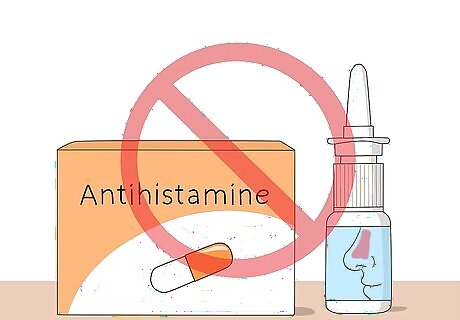
Try a few nights without antihistamines or decongestants. These medications, which work to dry up your nose, can also dry out your mouth. If you're having a lot of issues, you may try avoiding these medications for a few nights.
Seeing a Doctor
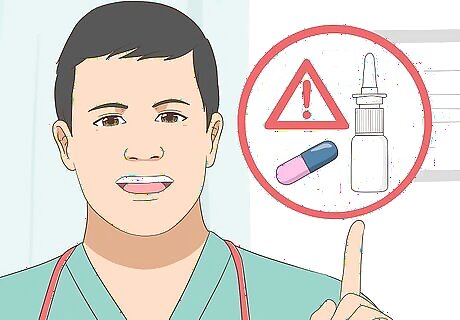
Ask your doctor about medications that could be causing dry mouth. If you're on a new medication that has caused dry mouth, the doctor may be able to alter it by lowering the dose. Alternatively, the doctor may try a different medication altogether. Talk to your doctor to discuss this option. Quite a few medications can cause dry mouth, including muscle relaxants, pain medications, antidepressants, antihistamines, blood pressure medications, and anxiety medications.
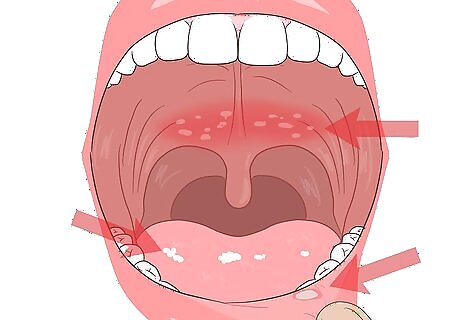
Visit the doctor if you have sores, white patches, or redness. These symptoms, along with symptoms like pain when swallowing or difficulty swallowing, can indicate other infections and conditions, such as diabetes or a fungal infection. Therefore, you need to discuss them with your doctor. Similarly, if your dry mouth comes on suddenly and lasts for several weeks despite you treating the symptoms, you should see a doctor.
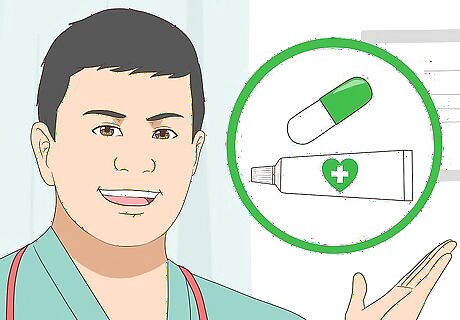
Discuss antifungal or antibiotic drugs for an infection. Sometimes, dry mouth can develop due to an infection. Your doctor may recommend a round of medications to help treat the condition.
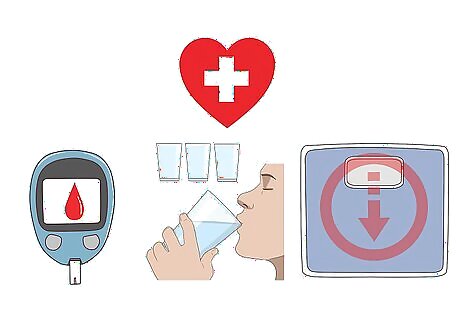
Talk to a doctor to treat any other underlying conditions. While dry mouth isn't life-threatening by itself, it can point to other conditions. See your doctor if the symptom has come on suddenly and you've noticed other changes in your body. For instance, dry mouth can be a symptom of diabetes. Other symptoms include extreme thirst, frequent urination, losing weight, excessive tiredness, and irritability.
Making Lifestyle Changes
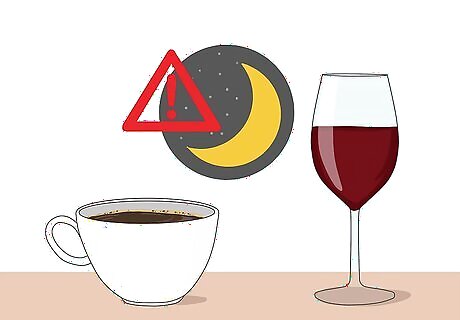
Have less caffeine and alcohol, particularly in the evening. Caffeine and alcohol dry your mouth out, so it's best to avoid it if possible. To help with nighttime dry mouth in particular, limit your caffeine or alcohol to earlier in the day so that your mouth has a chance to recover before bed. Try cutting out caffeine after noon to see if it helps.
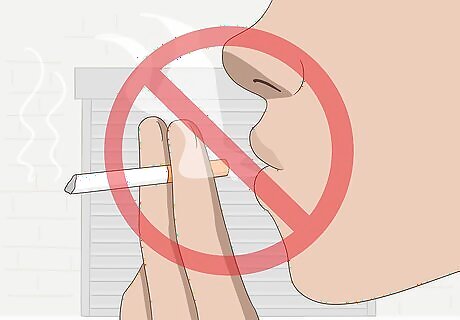
Quit smoking if you're a smoker. You probably know that smoking contributes to a variety of health problems. You may not know that it also contributes to dry mouth during the day and at night. Avoid tobacco to help with your dry mouth problem. All tobacco, including chewing tobacco and pipe tobacco, contributes to dry mouth.
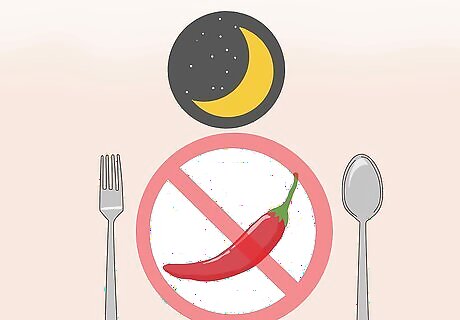
Stick to non-spicy foods, especially at night. Spicy foods can dry your mouth out, so skip them when possible to help keep your mouth moister. If you must have spicy foods, have them at lunch rather than dinner so you're less likely to have spicy-food related dry mouth at night.
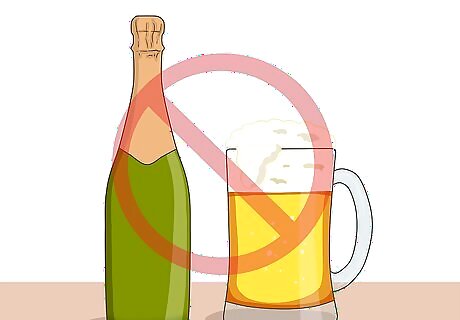
Cut back on alcohol if you drink a lot. Alcohol can also give you dry mouth. Lower your intake of alcoholic beverages, especially in the evening and at night, or cut them out altogether. Even a glass of wine at dinner could contribute to your nighttime dry mouth. Try cutting evening alcohol out for 1-2 weeks to see if it helps.




















Comments
0 comment